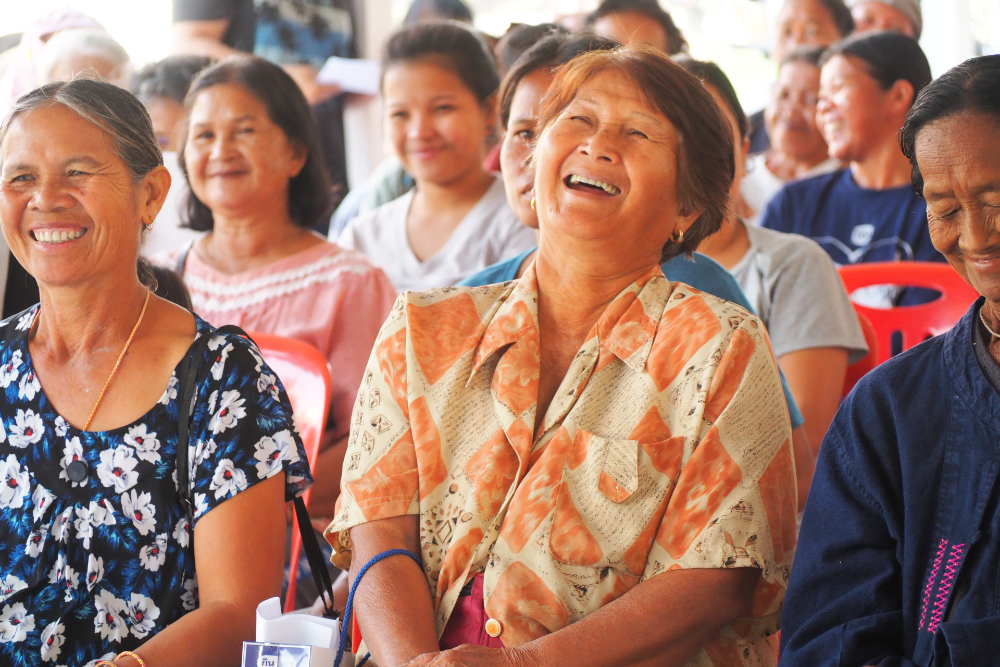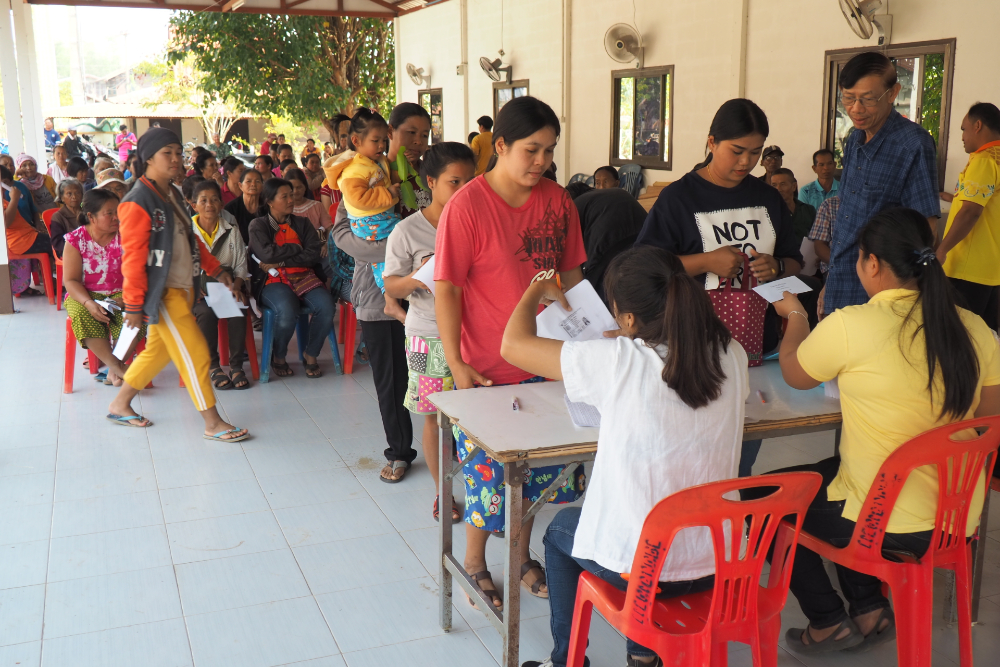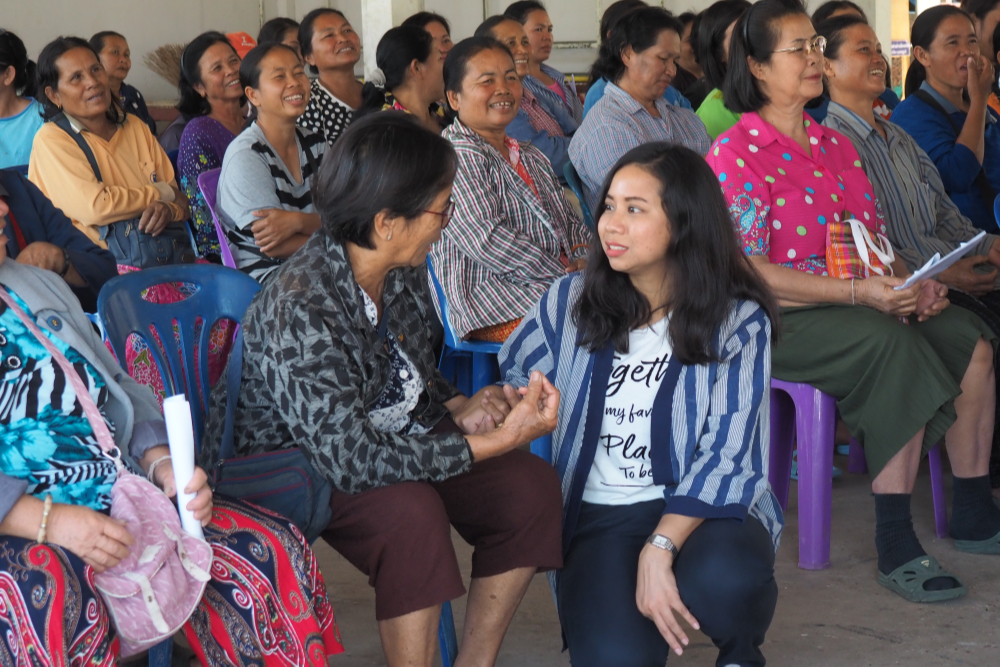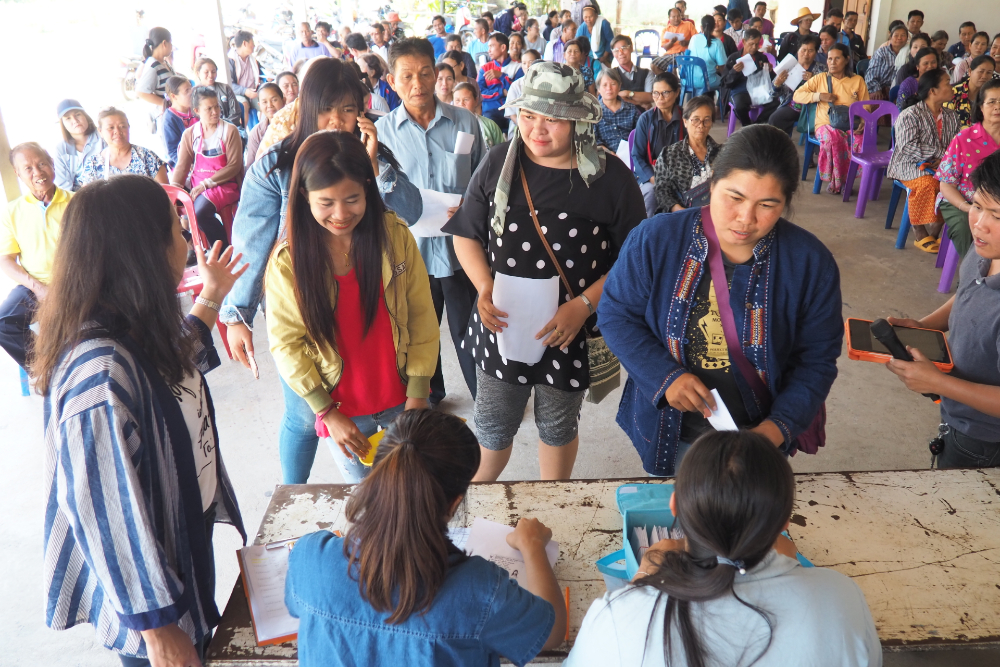UBON RATCHATHANI, Thailand – Ever since local farmers developed a better understanding of the international standard for sustainable rice cultivation and managed to do away with overusing fertilizer, they have earned more money and become a role model for those who still feel uneasy about shifting from their long-standing practices.
The small-scale farmers follow the good cultivation practices of the Sustainable Rice Platform (SRP), the world’s first voluntary sustainability standard for rice introduced by a public-private partnership project called Better Rice Initiative Asia or known as BRIA.
In addition to improving farm incomes, a total bonus of 900,000 baht (about 26,455 euros) has brought a smile to the faces of more than 1,200 farmers in several districts across Ubon Ratchathani province.

One of the farmers who has received a bonus, 67-year-old Chomphu Thipwong from Baan Tha Lat in Samrong district said the tailor-made fertilizer is good for the soil and saves her a lot of money.
“I apply the fertilizer as needed and at the right time, which saves both the rice plants and my money. I was spending 9,000 baht (267 euros) per year on fertilizer but that has now dropped to just 5,000 baht (147 euros)”, Ms. Chomphu said.

Of the 80 rai of rice farmland, 7 rai is reserved for glutinous rice for her family’s consumption while hom mali rice is grown on 70 rai. The remaining area is used to cultivate vegetables.
She set aside 23 tonnes of hom mali rice and sold it to the project last year, receiving 2,000 baht (59 euros) as a special bonus.
The amount of bonus depends on the adulteration level of the rice, whether unplanned or deliberate. “I am happy with my current income while the bonus is proof that I can grow rice in line with international standards,” she said.
According to Ms. Chomphu, the rate of fertilizer use has gone down from 60 bags per 70 rai to only 24 bags.
“I first joined the project in March 2019. I didn’t know how to customize fertilizer before but once I learned to tailor the fertilizer to meet specific nutritional needs, I enjoyed doing it,” she said.

Ms. Chomphu is one of the local farmers being supported by Thailand’s Rice Department, Olam International and the Deutsche Gesellschaft fur Internationale Zusammenarbeit (GIZ), the German government’s sustainable development service provider, to adopt the SRP-related concept for the long-term development of the economy and the environment.
In 2019, farmers in Ubon Ratchathani were audited and received a score of 93.87. They met all essential performance levels for the SRP’s applicable requirements, meaning they are cultivating rice sustainably.
“The bonus is to boost your morale and offer you an incentive to commit to the project’s key goal – sustainability. The consumers want rice that is produced by happy farmers,” Narawadee Modenuch, Research and Sustainability Analyst at Olam International, a leading agri-business operating in 70 countries, told a group of farmers during her field visit late last month.

Montree Promaluksan, the project’s field manager, said the bonuses also aimed to encourage farmers who have not adopted technology for rice cultivation to shift from their long-standing practices and gain a better idea of the climatic drivers in rice production.
“The important thing is that their rice farming has the capacity to make profits. The long-term sustainability and continuity of care for local farmers should go hand in hand for the betterment of the country and the future generations of farmers,” Mr. Montree said.
The project’s team visited groups of farmers to hand out the bonuses between January 23 and February 5.

